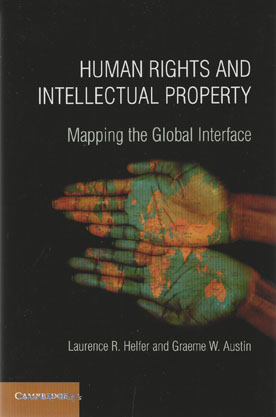
This book explores the interface between intellectual property and human rights law and policy. The relationship between these two fields has captured the attention of governments, policymakers, and activist communities in a diverse array of international and domestic political and judicial venues.
These actors often raise human rights arguments as counterweights to the expansion of intellectual property in areas including freedom of expression, public health, education, privacy, agriculture, and the rights of indigenous peoples. At the same time, creators and owners of intellectual property are asserting a human rights justification for the expansion of legal protections.
This book explores the legal, institutional, and political implications of these competing claims: by offering a framework for exploring the connections and divergences between these subjects; by identifying the pathways along which jurisprudence, policy, and political discourse are likely to evolve; and by serving as an educational resource for scholars, activists, and students.